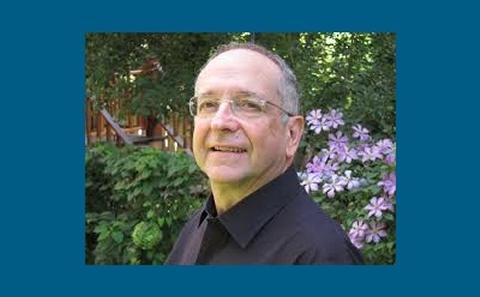Peter Schubert Hartley Residency Seminar

- Date:
- 2 - 3 May 2017
- Venue:
- Building 6, Room 1077 (Lecture Theatre A)
For more information regarding this seminar, please email David Bretherton at D.Bretherton@soton.ac.uk .
Event details
We are delighted to welcome Prof. Peter Schubert (McGill University) for our third Hartley Residency of the 2016-17 academic year.
Schedule
Day 1: Tuesday 2 May 2017
11:00–12:30, Room 6/1077: Introductory seminar for postgraduates. Material that students should read in advance has been circulated.
14:00–15:30: One-to-one meetings between Peter Schubert and PhD students (appointments should be arranged through David Bretherton, D.Bretherton@soton.ac.uk).
16:00–17:30, Room 6/1077: Formal presentation: Peter Schubert (McGill University), 'Chord Progressions in Renaissance Polyphony?'. Chair: Laurie Stras.
To be followed by a wine reception in the Arlott Bar.
Day 2: Wednesday 3 May 2017
10:00–12:00, Room 6/1077: Improvisation workshop with Peter Schubert.
12:00–13:00: One-to-one meetings between Peter Schubert and PhD students (appointments should be arranged through David Bretherton, D.Bretherton@soton.ac.uk).
14:00-15:30, Room 6/1077: Postgraduate practical symposium on improvisation practices in the Renaissance.
Chair: Elizabeth Kenny.
Eric Thomas: 'When is a chord not a chord? – Counterpoint, Canons and Faux-Burden in lute improvisation in 16th century style'.
Marcello Mazzetti: 'Beyond "violete" and "casonséi": 16th-century Brescia as a case study for contrappunto alla mente'
Livio Ticli: 'Improvising performer identity: synergies between vocal, instrumental, poetic and dance forms of improvisation'
16:00–17:30, Room 6/1077: Roundtable: 'Improvisation in the Renaissance'. Panellists: Jeanice Brooks, Elizabeth Kenny, Peter Schubert, Laurie Stras. Chair: Mark Everist.
'Post-Hartley' PGR Study Morning: Thursday 4 May 2017
09:00–11:00: Meetings of PGR Study Groups.
Group 1: 2/2061. Musicology/historical topics, including performance practice, up to the end of C18th. Suggested members: Cardona, Amersfoort, Newcombe, Mazzetti, Glenton, Thomas, Ticli.
Group 2: 85/2211. Musicology/historical topics, including performance practice, from C19th onwards. Suggested members: C. Tang, J. Tang, Stafford, Alcock, Garry, Hawnt, Wang, Venegas Butt, Osmond.
Group 3: 85/2213. Technology. Suggested members: Brough, Kent-Muller, Mercier.
Group 4: 67/1013. Composers.
11:00–13:00, 6/1077: Plenary Session for all PGRs. Mark Everist will lead a discussion of Carolyn Abbate, 'Music: Drastic or Gnostic?' Critical Inquiry 30 (2004), 505-536, and Steven Rings, 'Talking and Listening with Jankélévitch', Journal of the American Musicological Society 65 (2012), 218-223.
Abstract
Peter Schubert (McGill University), Chord Progressions in Renaissance Polyphony?'.
Although it is irresistible to see and hear chords in Renaissance music, we sometimes feel guilty when we do, because we think the concept is anachronistic. This talk examines some evidence that musicians in the late 16th century might have thought in terms of chord progressions. I begin with a brief survey of contrapuntal procedures that generate what look like chord progressions (e.g., falsobordone, stretto fuga, invertible counterpoint, etc.) and a look at what some theorists said about chords (e.g., Aron, Zarlino, Lippius, Burmeister, and Campion). I conclude with analyses of chordal sections of mid to late 16th c. madrigals (especially madrigali ariosi) by Wert, Rore, Vecchi, and Monteverdi. In this last section I will introduce the notion of the 'bassline soggetto,' a repeating melody that never migrates out of the bass. Above the repetitions of the bass, the upper parts sound different lines but maintain the same pitch classes, albeit shuffled.
Speaker information
Peter Schubert, McGill University. Professor.